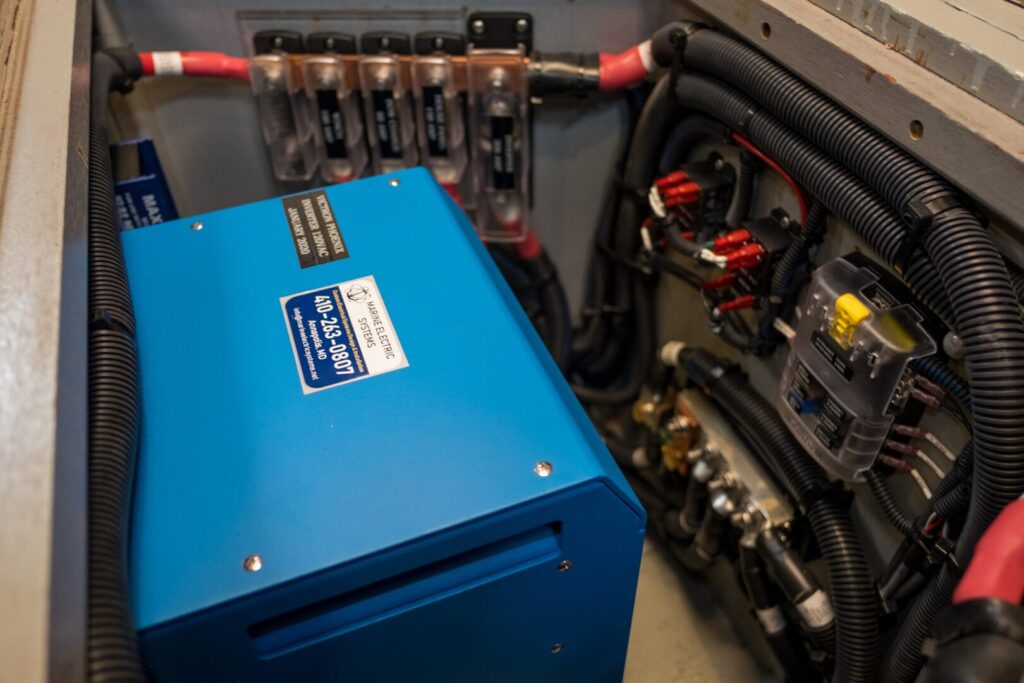
Lithium batteries are a popular choice for boaters due to their long lifespan and fast charging capabilities.
Every boat needs a reliable battery to power the various electrical systems onboard. Whether it’s running the motor, powering lights, or operating navigational equipment. A good battery is essential to the safety and success of any sailing trip. That’s where lithium batteries come in.
Lithium batteries are a popular and efficient choice for boaters due to their long lifespan, fast charging capabilities, and lightweight design. Let’s dive in and learn all about lithium battery installation for your boat.
Benefits of Lithium Marine Batteries
Lithium batteries provide several advantages over traditional lead-acid batteries. They are more efficient and reliable than traditional boat batteries and have a longer lifespan. They can last ten times longer than lead-acid batteries, making them a more cost-effective choice. Additionally, lithium batteries are much lighter than their lead-acid counterparts. So, they are ideal for boats where weight is a concern. Lithium batteries also charge much faster than lead-acid batteries. They can be charged and discharged more frequently without damage to the battery. This means you can use your fishing boat for longer periods without recharge.
Where to Install Your Battery
Before installing a new battery, you’ll need to assess the battery compartment on your boat. You should select the right location for installation. The battery compartment should be dry and well-ventilated. Also, the location should be secure and accessible. It’s also essential to ensure that the area is compatible with the dimensions of your lithium marine battery.
Have a Battery Management System
In every installation, the battery must be connected to a Battery Management System (BMS). The BMS monitors and protects the battery from damage. A properly designed BMS provides battery voltage, charge and discharge rates, temperature, and an accurate State of Charge. A BMS protects the cells from damage, such as:
- Excessive temperatures
- Out-of-spec currents and voltages
Although a BMS is an additional installation step, consider it a necessary accessory. You’ll increase the life of the batteries so that you aren’t recycling the products shortly after their purchase.
Adding Extra Battery Banks
Lithium marine batteries have reliable power, but you likely have a unique system. You might have more items to power compared to other vessels. Consider installing multiple banks of batteries to ensure you have sufficient power. Split the energy between your accessories and the motor or generator. Lithium ion batteries can be installed in series, parallel, or series parallel, so determine which layout suits your needs. With additional banks, your boat can run almost entirely on lithium energy. Carrying other fuel isn’t required anymore, and your boat remains lightweight and agile in the water.
Marine Electric Systems, LLC is a Leader In the Maritime Industry
We here at Marine Electric Systems have over 30 years of industry experience. You can trust our team for reliable service and expert craftsmanship in the Maryland, Baltimore, Annapolis, and Baltimore city areas! We’re highly certified and adhere to all ABYC and NMEA regulations. We specialize in top-notch electrical solutions for recreational, commercial, and government boating clients. Anything from electrical refits, to navigation systems, or boating maintenance. To stay up to date on our services, follow us on Facebook, LinkedIn, Pinterest, Instagram, and YouTube. You can also contact us at 410-263-0807.
